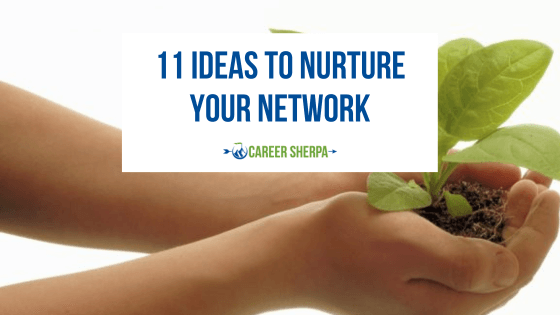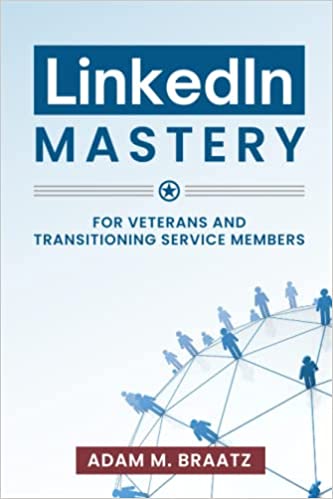Staying in contact with people often falls to the bottom of everyone's to-do lists. But, with a bit of planning and a dash of creativity, you can nurture your network.

If you're like me, you probably have a drawer full of business cards, hundreds of LinkedIn connections, and contact information from emails. Anyone of these contacts could hold the key to your next opportunity. But you don't know which one. This means you need to find ways to stay in contact with as many as possible.
Here are eleven twists to keep in touch with people you know.
1. Not Your Ordinary Holiday Wishes
It seems everyone sends a holiday card in December. Don't get lost in the crowd. Instead, send holiday greetings for off-holidays, such as Valentine's Day, Thanksgiving, or Groundhog's Day. Or pick a more unusual celebration, such as National Gumdrop Day or National Cat Day, as a trigger to send your holiday wishes.
2. Pay Attention to Birthdays
Social media's prompting reminders have made it easier to remember to send birthday cheer. However, some of your contacts may not have shared this important date on a social profile, and so this important day slips through the cracks. Be sure to note birthdays on your personal calendar, and go a step above by sending birthday cards through the mail. It takes just that much more thought and effort.
3. Create Your Very Own E-Newsletter
Why would you have a personal e-newsletter? Because the technology is easy, and it's good personal branding. Your monthly or quarterly e-newsletter should be useful to your readers. For example, if many of your connections are in the tech industry, share current news about new gadgets or reviews of new technology from reputable sources. Don't forget to include personal updates, such as major milestones, ongoing education or training, events you've attended, or projects you are working on. You can send a simple email; just be sure you blind copy recipients to protect privacy. And never spam people by adding them to your mailing list without permission or the option to opt-out.
4. Say Congratulations
When your contacts are mentioned or published in the news, congratulate them on their good public relations. You can use Google Alerts to customize the news updates on people and companies in your network.
5. Send a Token
For extra-special people, you may want to send a book you know they'll enjoy. If you are looking for less expensive alternatives, consider sending a virtual Amazon gift card or other gift card to their favorite coffee shop or lunch spot.
There are also ideas that may seem a bit over-the-top but that might just work. If you share a mutual interest in gardening, send forget-me-not seeds along with a note about how you value the connection with the person. If you both love to travel, send a postcard from your next trip that says, "Wish You Were Here." Or bring back some swag from a conference, and send it along with a message about your takeaways from the event.
6. Turn Bad Into Good
Remember that job you were a runner-up for? Or that potential client that didn't come through? Don't give up. One way to stay in front of them is to send your contact a follow-up email or letter about three months after the new hire started or after the deal went through. Sincerely express your hope that all is going well and that you would always be open to future conversations.
7. Share Useful News
Sending a message that says, "Just checking in!" can feel like a waste of time for you and the person receiving it. Instead, share relevant news. Perhaps there are changes in regulations or policies within the industry; why not share these with those in your network who need to know? Keep up to date by using Feedly, LinkedIn or whatever your favorite source of news is.
8. Pick Up The Phone
Sometimes, just picking up the phone for a quick check-in can be a welcome surprise. Try calling first thing in the morning, at lunch, or at the end of the day, when people are more likely to be near the phone and not in meetings. If you get voice mail, leave a short message with your name and phone number, and why you are calling.
9. Write a Recommendation
LinkedIn is the perfect platform to recommend a past colleague, service provider, or client. When someone receives an unsolicited recommendation, it is a welcome surprise.
10. Connect People
Do you know two people you think would benefit from meeting each other? Be a matchmaker and introduce them. Send one email to both people and explain why you think they would benefit from meeting. Provide enough information so each person can understand the potential of the relationship and know how to research and contact one another.
11. Invite Along
The next time you receive an invitation to an event or fundraiser, consider inviting one of your contacts to join you. Just be sure it is a cause you both support.
Tips To Make Networking Possible
In order to network, you need to have a couple of systems in place. Remember, networking is a long-term strategy. It's one way you'll manage your career in the future.
Get Organized
Create your database now. Add important information about your network contacts like birthdays, names of partners/spouses, children, college attended, organizations, interests, favorite food, and so on. You can use a formal customer relationship management system, a simple Excel spreadsheet or your email/phone contacts.
Carve Out Time
Put reminders to send outreach and important dates on your calendar. Here are some suggestions:
Weekly: Check LinkedIn and Facebook notifications for work anniversaries and birthdays.
Monthly: Plan the outreach for the month- who do you need to touch base with and what will you do.
Annually: Evaluate the strength of your network? Have you done enough to stay in touch?



